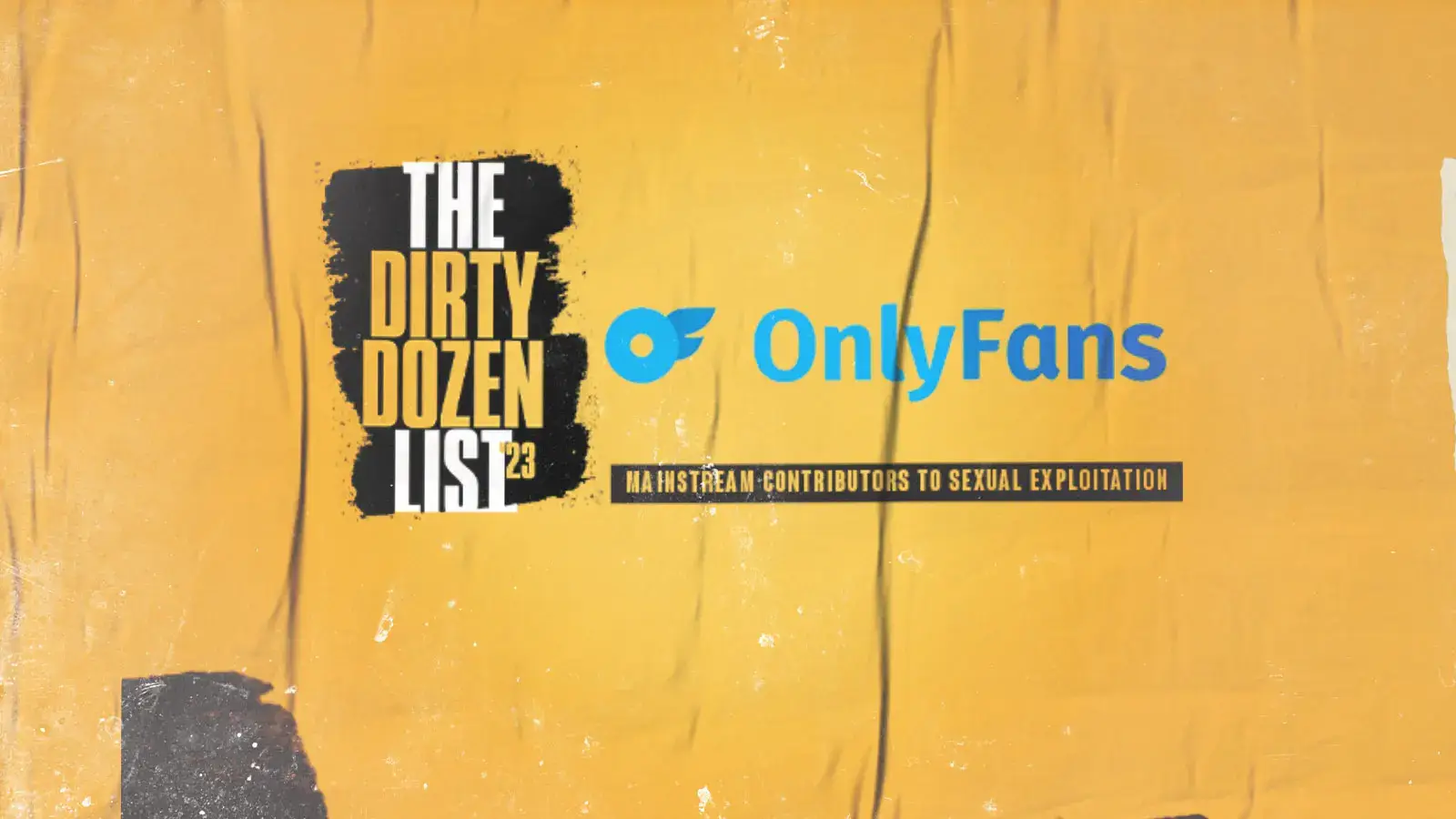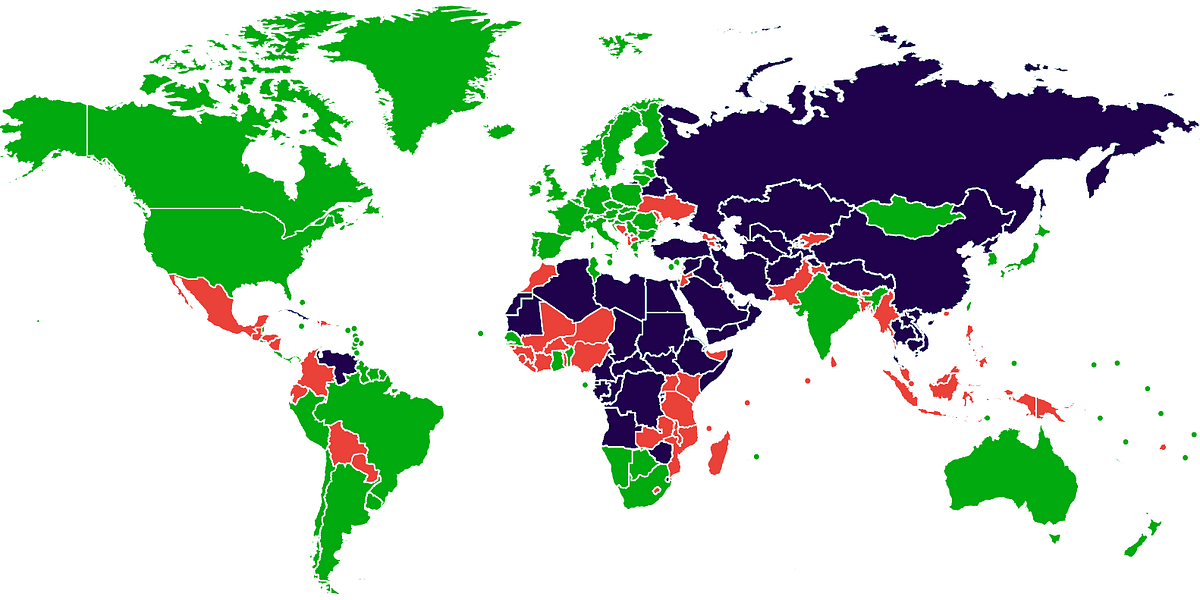OnlyFans is making 20% of what is transacted across the site.It's also often a question of money.
The providers are making a lot of money, and the site owners are not making enough.
Because investors don't want to put money in, when there is pornography. They hope that investors will be more interested in investing in a cleaner site.
OnlyFans to Ban Sexually Explicit Content
- Thread starter CLOUD 500
- Start date
You are using an out of date browser. It may not display this or other websites correctly.
You should upgrade or use an alternative browser.
You should upgrade or use an alternative browser.
No clue, could be any of the others. Many Vids is likely going to be the lions share.So yes, what do you think is the next OF everybody will move to?
Good, escorts can get back to, well, you know, escorting.
It’d be nice if this somehow leads to prices among Indy dropping by $50 -100 as well. Lol.
I find that odd that excuse about payment processors. There are a plethora of porn sites and they all use payment processors. One would think that Onlyfans would simply change payment processor if their current one have problem with porn, no?
Seems like an excuse. I am really, really not a Conspiracy Theory guy, but seems to me there must be something else behind this...
Pornhub had the same thing happen and had to remove all the unverified content to try and appease Visa/Mastercard.
It didn't work and now they only accept crypto.
For $12.99 you can see her face. For $250 you can ejaculate on it. LOL.
Last edited:
The banning of explicit sexual content ("porn") on OnlyFans is probably more related to the relentless campaigning against porn, prostitution and sex in general by ant-sex zealots on both the right and the left. They can't ban the content themselves so they pressure the credit card companies to do it for them. The credit card companies are deathly afraid of being accused of "endorsing" unapproved sexual practices and so the card companies do the banning. There is no reason to think that Visa and Mastercard have genuine moral objections to allowing men to spend their money on sex.

 www.thedailybeast.com
www.thedailybeast.com

 www.newsweek.com
www.newsweek.com

 reason.com
reason.com

 endsexualexploitation.org
endsexualexploitation.org

The Real Reasons Why OnlyFans Is Banning Porn
It’s not so much about investors as it is MasterCard’s upcoming policy changes and the anti-sex-work lobby.
...And MasterCard did not act alone. It was pressured into this decision by groups like Exodus Cry and the National Center on Sexual Exploitation (NCOSE), both of which have waged years-long campaigns against sites like OnlyFans and Pornhub with the ultimate aim of abolishing the sex-work industry entirely.
Following the OnlyFans announcement, NCOSE did a victory lap, releasing a statement saying “the announcement made by OnlyFans that it will prohibit creators from posting material with sexually explicit conduct on its website comes after much advocacy from NCOSE, survivors and allies.”

Before Its Sex Content Ban, Anti-Porn Group Asked DOJ To Probe OnlyFans
The group has called OnlyFans, Netflix, Google's Chromebook laptops and the academic database EBSCO "mainstream facilitators of sexual exploitation."

Why OnlyFans Is Double-Crossing Sex Workers
OnlyFans—a website popularized as a place for the sharing and monetizing of erotic imagery—will stop allowing "sexually explicit" content as…
 reason.com
reason.com
...We saw this with Craigslist and Backpage, when they were the biggest purveyors of online sex work ads. Authorities pressured them to accept credit card payments, since these would be trackable and usable by prosecutors to help find and punish people who did use the site for exploitation. When Backpage agreed, it was then accused of profiting off exploitation; some even went so far as to threaten Visa and Mastercard if they wouldn't stop doing business with Backpage. Faced with political pressure and public accusations that they were facilitating sex trafficking, the credit card companies complied. The case had to go all the way to a federal appeals court, which ruled that the bullying of the credit card companies to drop Backpage had been unconstitutional. As this all played out, Backpage went back to free adult ads and tried alternative payment methods, like cryptocurrency. Both actions—moves brought about by unconstitutional political pressure—have since been used by prosecutors as evidence of criminal activity such as "money laundering."

OnlyFans - NCOSE
OnlyFans promotes itself as empowering, but in reality it only empowers sex traffickers, child exploiters, and “revenge porn” posters.
It’d be nice if this somehow leads to prices among Indy dropping by $50 -100 as well. Lol.
Why?
If you’re an Indy, and You Charge/Get, oh let’s say $400/Hour...Why would You lower Your Price?
Yes, True Economics.... You May need to Add $50/$100 for COFFor $12.99 you can see her face. For $250 you can ejaculate on it. LOL.
SO much Free Porn out there....oh Wait, with OF You make a Personal Connection....Wake Up!
***BA BYE OF***
Today OnlyFans seems to be reversing course on its previously announced ban on hardcore porn:

 www.cnbc.com
www.cnbc.com

OnlyFans says it will no longer ban porn in stunning U-turn after user backlash
OnlyFans says it received "assurances" from its banking partners that will allow the platform to continue allowing sexually explicit content.
OF saw their membership already declining hard since a lot of peoples were moving to fansly lol. Onlyfans without sex work is basically youtube without youtubers, no matter how they refuse to admit it, youtube wouldn't survive on music clips and official stuff only. They need the youtubers. Onlyfans need the sex workers.
There is a very important business lesson here that one needs to know and learn from.
The importance of the Law of Control. If you don't you are just a glorified employee and you are always at the mercy of others with your livelihood. LonelyFanners just joined the group of folks like YouTubers, instagrammers, facebookers, Amazoners, and Googlers who lost business or went out of business due to change in search algorithms, policy or both. Deep down these folks have no control under the hood. It is an illusion.
If you want to be self made and self paid you have to have total control. You need to have your own platform. Meaning your very own website and the ability to process money transactions on your website. Not those wix websites for instance but a site that just ends in .com. You pay for your own hosting. It is a lot of work and not going to be easy but once you are able to get things up and running you don't have to worry about getting surprise hits that can take you out of the game.
The importance of the Law of Control. If you don't you are just a glorified employee and you are always at the mercy of others with your livelihood. LonelyFanners just joined the group of folks like YouTubers, instagrammers, facebookers, Amazoners, and Googlers who lost business or went out of business due to change in search algorithms, policy or both. Deep down these folks have no control under the hood. It is an illusion.
If you want to be self made and self paid you have to have total control. You need to have your own platform. Meaning your very own website and the ability to process money transactions on your website. Not those wix websites for instance but a site that just ends in .com. You pay for your own hosting. It is a lot of work and not going to be easy but once you are able to get things up and running you don't have to worry about getting surprise hits that can take you out of the game.
I agree in theory, but in practice it's far from as easy. Say you want to be an influencer, but your pix are on your own site not Instagram's. Aint nothing gonna happen for you. If you are a video creator, but choose to use Vimeo instead? Good luck with that.There is a very important business lesson here that one needs to know and learn from.
The importance of the Law of Control. If you don't you are just a glorified employee and you are always at the mercy of others with your livelihood. LonelyFanners just joined the group of folks like YouTubers, instagrammers, facebookers, Amazoners, and Googlers who lost business or went out of business due to change in search algorithms, policy or both. Deep down these folks have no control under the hood. It is an illusion.
If you want to be self made and self paid you have to have total control. You need to have your own platform. Meaning your very own website and the ability to process money transactions on your website. Not those wix websites for instance but a site that just ends in .com. You pay for your own hosting. It is a lot of work and not going to be easy but once you are able to get things up and running you don't have to worry about getting surprise hits that can take you out of the game.
Of you can point to the person that succeeded on their own terms, but they're the exception to the rule. All the eyeballs are at those sites, and people want to be where the eyeballs are.
With onlyfans, it seems like you have to bring your own crowd, so that's actually a place that you may be able to host your own?
Yeah you have to build everything from the ground up. Unless you know how to code you have to hire a coder/coding team to build your site and all the bells and whistles. That ain't cheap and the hardest of all is finding dependable people to do it. That is one aspect and hurdle you have to jump through. Well we both agree it is definitely far from easy. Yet if you got your site going platforms like facebook, instagram and lonelyfans are just secondary marketing tools to stir to your site as opposed to being the main money driver.I agree in theory, but in practice it's far from as easy. Say you want to be an influencer, but your pix are on your own site not Instagram's. Aint nothing gonna happen for you. If you are a video creator, but choose to use Vimeo instead? Good luck with that.
Of you can point to the person that succeeded on their own terms, but they're the exception to the rule. All the eyeballs are at those sites, and people want to be where the eyeballs are.
With onlyfans, it seems like you have to bring your own crowd, so that's actually a place that you may be able to host your own?
An article on the website Quillette explains the forces behind the recent attempt at censoring Onlyfans. It's the same old story-religious zealots allied with feminist zealots have accused the site of "sex trafficking" and so influenced other organizations to take an action that shows they oppose "sex trafficking." Luckily in this case, the credit card companies backed off but it's only a matter of time until the anti-sex zealots use the same tactic again.

 quillette.com
quillette.com
...Enormous resources have been raised to fight trafficking, but are then used to suppress prostitution and porn, which have now become synonymous with trafficking. This is cancel culture on steroids: small numbers of activists with access to immense funds are accusing literally every internet platform of trafficking. A single illegal video, a single photo, a single classified ad are now simply referred to as “trafficking,” with the implication that businesses like MindGeek and OnlyFans are directly complicit in rape and child abuse.
Backpage, Pornhub, and OnlyFans have simply been the testing ground for an ultra-conservative backlash that seeks to roll back the sexual revolution and to challenge the First Amendment. Since the 1990s, platforms have been protected from liability for user-generated content by Section 230 (a part of the US Communications Decency Act). This key piece of legislation has protected free speech online, and allowed the internet to become what it is today. For years, authoritarians of various stripes have tried to weaken Section 230, and they won in 2018 when the FOSTA/SESTA acts were passed, which made platforms liable for sex trafficking.
At the head of this assault is Laila Mickelwait of religious-right group Exodus Cry, and NCOSE, another group with roots in the religious Right (although it tries to distance itself from religion). These are supported by anti-porn feminist campaigners, and others on the Left. Perhaps the most influential of these is the New York Times journalist Nick Kristof, who has helped spread anti-trafficking propaganda, including false claims. This coalition is now flexing its muscles and using FOSTA/SESTA to mount full-scale attacks. Now, activists’ ambitions are rising beyond porn sites, and their sights are on Twitter, the least-censored of the large social media platforms, which stands accused of sex trafficking. This movement to hold platforms accountable for their users' activities is possibly the biggest single assault on free expression in American history, and it would be naive to assume it will remain limited to attacking pornography and prostitution.

The War on Porn: Cancel Culture on Steroids
OnlyFans was given a huge boost by the pandemic. Many sex workers, faced with the sudden loss of their regular incomes, and stuck at home with time on their hands, flocked to the platform and built new streams of income.
 quillette.com
quillette.com
...Enormous resources have been raised to fight trafficking, but are then used to suppress prostitution and porn, which have now become synonymous with trafficking. This is cancel culture on steroids: small numbers of activists with access to immense funds are accusing literally every internet platform of trafficking. A single illegal video, a single photo, a single classified ad are now simply referred to as “trafficking,” with the implication that businesses like MindGeek and OnlyFans are directly complicit in rape and child abuse.
Backpage, Pornhub, and OnlyFans have simply been the testing ground for an ultra-conservative backlash that seeks to roll back the sexual revolution and to challenge the First Amendment. Since the 1990s, platforms have been protected from liability for user-generated content by Section 230 (a part of the US Communications Decency Act). This key piece of legislation has protected free speech online, and allowed the internet to become what it is today. For years, authoritarians of various stripes have tried to weaken Section 230, and they won in 2018 when the FOSTA/SESTA acts were passed, which made platforms liable for sex trafficking.
At the head of this assault is Laila Mickelwait of religious-right group Exodus Cry, and NCOSE, another group with roots in the religious Right (although it tries to distance itself from religion). These are supported by anti-porn feminist campaigners, and others on the Left. Perhaps the most influential of these is the New York Times journalist Nick Kristof, who has helped spread anti-trafficking propaganda, including false claims. This coalition is now flexing its muscles and using FOSTA/SESTA to mount full-scale attacks. Now, activists’ ambitions are rising beyond porn sites, and their sights are on Twitter, the least-censored of the large social media platforms, which stands accused of sex trafficking. This movement to hold platforms accountable for their users' activities is possibly the biggest single assault on free expression in American history, and it would be naive to assume it will remain limited to attacking pornography and prostitution.
So stupid, like if they are going to stop a river from flowing. Level of consumption of porn is highest in US states that are the most repressive...A good article about the power of Mastercard and their allegiance with Exodus Cry.
My Friend Google says....So stupid, like if they are going to stop a river from flowing. Level of consumption of porn is highest in US states that are the most repressive...

The 10 Most Repressive Countries in the World — and the 10 Most Free
The recent talks with North Korea have brought renewed attention to that nation — and to the extremely repressive nature of its government…

Top 10 most porn watching countries in the World, Pakistan on the first position - DNP INDIA
highest porn watching countries in the world
 www.dnpindia.in
www.dnpindia.in
Sorry, your friends to the South (USA) did not make the Top 10....
OnlyFans STILL not worth the Money!
***STILL NOT PAYING FOR ONLINE PORN***
www.newscientist.com/article/dn16680-porn-in-the-usa-conservatives-are-biggest-consumers/amp/My Friend Google says....

The 10 Most Repressive Countries in the World — and the 10 Most Free
The recent talks with North Korea have brought renewed attention to that nation — and to the extremely repressive nature of its government…medium.com

Top 10 most porn watching countries in the World, Pakistan on the first position - DNP INDIA
highest porn watching countries in the worldwww.dnpindia.in
Sorry, your friends to the South (USA) did not make the Top 10....
OnlyFans STILL not worth the Money!
***STILL NOT PAYING FOR ONLINE PORN***
Similar threads
- Replies
- 9
- Views
- 3K
- Replies
- 5
- Views
- 2K






